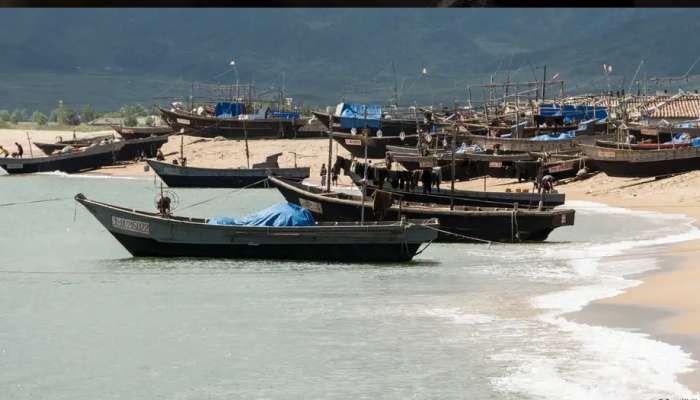
Pyongyang: Two North Korean fishermen who "accidentally defected" to South Korea have now spent more time in limbo than any other reluctant defectors in the history of the two nations.
The two men were picked up by a South Korean naval patrol on March 7 in the Yellow Sea. Apparently, wind and strong currents pushed their fishing boat over the Northern Limit Line (NLL) close to Eocheong Island, off the west coast of the peninsula.
There are no indications that the two men were intending to defect, and they have both repeatedly expressed their desire to return to North Korea during questioning by South Korean military and intelligence agencies.
Their stay in South Korea is now well into its third month, longer than any other loyal North Koreans who had requested repatriation. Dozens of others before them have found it relatively straightforward to make the return journey. This time, however, North Korea has refused to pick up the phone.
"North Korea has decided — and stated — that it wants to have absolutely no communications with the South, no matter what," said Andrei Lankov, a professor of history and international relations at Seoul's Kookmin University.
Men stuck 'until relations with the North improve'
The North is "very obviously showing its displeasure" with Seoul and the administration of the now impeached President Yoon Suk Yeol, a conservative who led more of a hard-line policy on Pyongyang, Lankov told DW.
"For now, these men appear to be stuck in South Korea until relations with the North improve, although it is of course possible that they will eventually change their minds and decide they no longer want to go back," he said. "Even if they do still want to return, it seems likely that might take a long time."
In October, the state-run Korea Central News Agency confirmed in a report that changes to the North's constitution that were proposed earlier in the year had gone into effect and that South Korea is now officially designated as a "hostile state." Under Pyongyang's new attitude to its neighbor, roads across the border have been dug up and blocked with anti-tank obstacles, railway lines have been removed and the frontier is "permanently" sealed.
Pyongyang is no longer interested in reunification and the South is its "principal enemy," KCNA reported.
North goes fully silent
As a consequence, North Korean personnel at the Panmunjom border post where the two sides have faced off since the armistice was signed to conclude the 1950-'53 Korean War are no longer responding when the South calls the cross-border hotline.
"The relationship was in a bad state before, but now the North has just stopped communicating completely," said Ahn Yinhay, a professor of international relations at Korea University in Seoul.
"Things became worse after Yoon became president, in part because he reached agreements with the US and Japan for a three-way security alliance in the region," she said. "And since then, they are not picking up the phone at the border and there is no other way to reach them."
Ahn said the two fishermen appear to be loyal North Korean subjects, although she questioned whether their repeated desire to return to the North is in part out of concern for the well-being of their families. The regime in Pyongyang has traditionally treated relatives of people who flee the nation harshly, including putting them in labor or political reeducation camps.
Quoting sources in the North, dissident media has reported that those punishments have become even more harsh recently.
"They will be aware that the North will be monitoring news reports in the South and I expect they are sticking to their position that they wish to be repatriated to protect their families," Ahn said.
South happy to see fishermen return home
The two men will inevitably have been exposed to the bright lights and relative opulence of life in South Korea, Lankov said, noting that they would be wise to guard their tongues if they do eventually return to their homeland.
"Unless they are suicidal, they are not going to be excessively talkative about what they have seen," he said.
Lankov also believes South Korea would be more than happy for anyone who is not committed to a life in the South to return to the North. In practical terms, supporting defectors is an expensive and extended commitment, with new arrivals from the North requiring health care, education to be able to work in the capitalist South and support with housing and integration into society.
Perhaps the greatest opportunity for the repatriation of the two men will come after June 3, when South Korea goes to the polls to elect its new president. At present, the Liberal Party candidate, Lee Jae-myung, is the strong favorite to emerge victorious and is widely expected to try to build bridges with the North.
"Lee may be willing to provide aid to the North with no strings attached and that may change the North's stance on communications, which would allow these men to go home," he said.